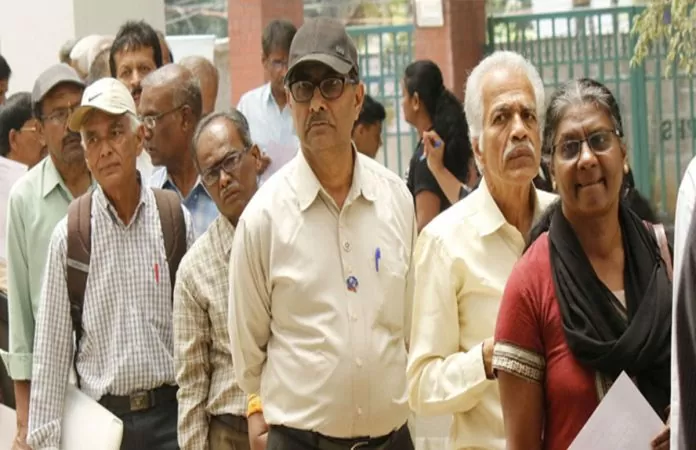
The Department of Pension and Pensioners' Welfare has issued an office memorandum in this regard on October 18. The Department of Pension and Pensioners' Welfare is the nodal department for formulating policies relating to pension and other retirement benefits of Central Government employees covered under the Central Civil Services (Pension) Rules, 1972.
There is good news for the employees retired under the old pension scheme. The Department of Pension and Pensioners' Welfare, Government of India has prepared a plan to increase the pension of retired employees by 20 to 100 percent. To get additional pension or additional compassionate allowance, retired employees will have to fulfill the age condition. If their age is between 80 to 85 years, their basic pension will increase by 20 percent. That means they will get 20 percent additional pension or additional compassionate allowance. After crossing a certain age, the pension of retired employees can be increased by 100 percent in the form of additional pension or additional compassionate allowance.
In this regard, an office memorandum has been issued by the Pension and Pensioners Welfare Department on October 18. The Department of Pension and Pensioners' Welfare is the nodal department making policies relating to pension and other retirement benefits of Central Government employees covered under the Central Civil Services (Pension) Rules, 1972. The Central Civil Services (Pension) Rules, 2021 prescribe the conditions for grant of additional pension to retired Central Government civil servants covered under the Central Civil Services (Pension) Rules, 2021. As per the provisions of sub-rule 6 of Rule 44 of the CCS (Pension) Rules, 2021 read with the erstwhile Rule 49(2-A) of the CCS (Pension) Rules, 1972, on attaining the age of eighty years or more or After that, the retired government employees will be given additional pension or additional compassionate allowance in addition to the pension or compassionate allowance admissible under the rules.
Additional pension or additional compassionate allowance will be paid from the 1st day of the calendar month in which it becomes payable. For example, pensioners born on August 20, 1942, will be eligible for additional pension at the rate of twenty percent of the basic pension from August 1, 2022. Pensioners born on August 1, 1942 will also be eligible for additional pension at the rate of twenty percent of the basic pension from August 1, 2022. The Central Government has requested all Ministries/Departments and Pension Disbursing Authorities/Banks to inform all concerned to comply with the above provisions of the Central Civil Services (Pension) Rules, 2021.
If the age of the retiring employee is between 80 to 85 years, he will get twenty percent additional pension. If the age of the employee is between 85 to 90 years, then 30 percent additional pension will be payable to him. If the age of the employee is between 90 to 95 years, the basic pension will be increased by 40 percent. Similarly, if the age of the employee is between 95 to 100 years, his basic pension will be increased by an additional 50 percent. If a retired employee has crossed the age of 100 years, his basic pension will be increased by an additional 100 percent.
Dr. Manjit Singh Patel, National President of 'National Mission for Old Pension Scheme India' says, this formula has been decided by the Government of India on the basis of Central Civil Services Rules 2021. He has urged the Government of India to extend the benefit of this rule to those opting for Option 1 in the event of death and disability covered under the National Pension System Amendment Act 2021 (CCS Rules 1972) of the Government of India. The reason is that in case of death and disability, the Government of India has given the employees the option to choose between NPS Exit Rules 2015 and CCS Rules 1972. In such a situation, this rule should also be applicable to those who have opted for CCS Rules 1972.
 look news india
look news india